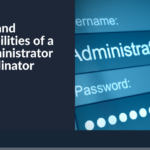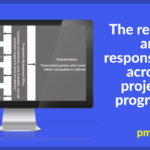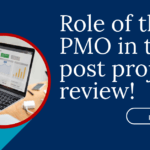Within your project management office (PMO), there needs to be a role that connects the office’s work to the projects it supports. That role and responsibilities of a PMO or project specialist fits that exact purpose.
Although every PMO structure will vary to some degree and have slightly different job roles, there are some positions that are essential. Having a PMO specialist on your team ensures that projects and your office work in harmony.
What does a PMO specialist do? We’re going to explore it in detail, looking at:
- What a PMO specialist is and what you need to be one
- The activities of a PMO specialist within the office
- Where a PMO or project specialist fits into your office
Helping you understand the roles in your office and whether you want to be a project specialist.
What is a PMO specialist?
A PMO specialist’s role is to support multiple projects in getting the project delivered on time and on budget. They work with the program manager, project manager, and the project team to ensure everything goes smoothly.
Their role is to be a project expert, making sure that the project methodology is understood and implemented correctly. Project managers are usually selected for their leadership or subject matter skills, meaning they need a specialist to support them with project functions.
How do I become a PMO or project specialist?
The main requirement to be a PMO or project specialist is to have project or PMO experience. You need to be able to demonstrate you can help a range of different projects achieve their goals through previous history.
Having a degree in management or business is likely to be a requirement of a PMO specialist role. Some businesses may also want you to have project or programme management certifications.
What’s the role of a PMO specialist?
On a daily basis, the role of a PMO specialist will be varied and will usually involve working with multiple projects that the PMO supports. Some of the common activities of the role include:
- Offering regular support in completing project functions to project manager and teams.
- Helping with the planning, scheduling, delivery, and closing of projects.
- Spotting knowledge and training gaps and organising or running meetings or sessions to address them.
- Ensuring that the documentation, processes, and frameworks from the PMO are implemented properly.
- Gathering and presenting data about the success of projects.
- Checking that the strategy laid out by the program manager or PMO is being adhered to.
They are responsible for finding and solving issues with projects and supporting project and program managers to get projects delivered according to targets. Their KPIs will likely include project success as well as data delivery and presentation for the PMO.
How does a PMO or project specialist integrate into a PMO?
The role of a PMO and a project specialist are broadly similar and either title could work within your PMO. A project specialist may slant more towards supporting projects in delivery whilst a PMO specialist may be more about ensuring the PMO’s policies are used right.
The end result will be the same.
Expect a PMO specialist to report to the PMO manager or leader. They’re the person who will take the direction from the PMO manager and take it to projects and help them apply it.
For example, when the PMO manager signs off a new process for project prioritisation, it will be up to the PMO specialist to roll it out to the project and program managers. In the other direction, if issues are identified with the process, they’ll take that back to the PMO to find a solution.
Depending on how many projects your PMO monitors and manages, your office may have more than one specialist on the team.
The role of a PMO specialist
A PMO specialist is there to communicate the needs and requirements of the PMO to project managers. They also help to ensure that the processes from the PMO are optimised to help projects deliver. The role and responsibilities of a PMO specialist will ensure that your office isn’t isolated from projects and you’ll know that there is someone available to support projects use the methods and processes that have been put in place.






